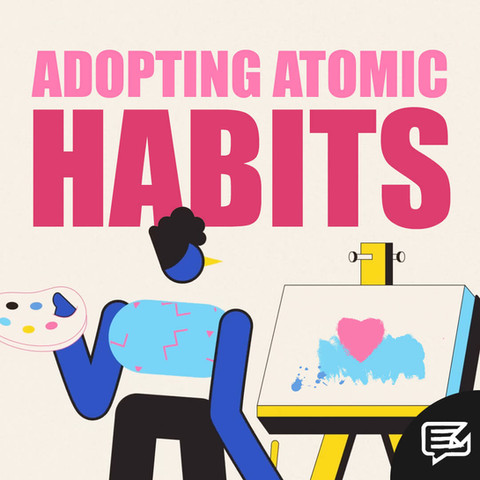
08.11.20
MONDAY, MONDAY: AI & SCHOOL ATTENDANCE
In July 2020, Leicester’s De Montfort University (DMU) published an article outlining the potential of artificial intelligence to improve school attendance. Utilising AI models, experts from DMU’s Institute of AI analysed data from Willen Primary School in Milton Keynes and identified patterns relating to pupils who were frequently absent.
No prizes for guessing which day of the week saw the greatest level of absenteeism… yep, that’s right – Monday.



The Mamas & The Papas had the right idea way back in 1966, lamenting in their only number 1 hit on the U.S Billboard Hot 100 “Monday, Monday”:
"Every other day, every other day of the week is fine… But whenever Monday comes, you can find me crying all of the time."
Now perhaps crying “all of the time” is an over-exaggeration for the majority of the population, but there’s no denying that Mondays are hard.
As adults, maybe you’ve had a few late nights over the weekend (or a few too many bevvys!), or simply enjoyed spending quality time with friends and family. For children, the lack of any tangible reward (financial, for example) for getting up and going to school makes it harder still. Not to mention the peer pressure, feelings of isolation and bullying that plague many youngsters in their formative years.
Whatever the reason, finding the motivation to start yet another week of the same old routine can be a monumental task.
To tackle the issue, the DMU researchers developed a two-pronged approach:
“Firstly, they increased the frequency and value of rewards given for full attendance, holding monthly raffles with prizes for those children who had not missed a day of school during that month.
“Secondly, they introduced a ‘Monday Matters’ initiative, giving pupils fun activities to look forward to on their first day back after the weekend.
“Thanks to these measures, the school achieved the required national average attendance of 96% for the first time in four years. They also saw a huge improvement in persistent absenteeism, which improved by more than 55% compared with a year ago.”
What fantastic results! If only we could enjoy such incentives in the workplace. How great would it be to look forward to “fun activities” on a Monday instead of overflowing inboxes, back-to-back Zoom calls and tepid cups of tea?
In the article, Dr. Raymond Moodley – the project lead - explains how the typical “all or nothing” approach to rewarding pupils is flawed:
“One of the key changes we wanted to make was to increase the incentives on offer for pupils who have a 100% attendance record over a shorter timeframe… Our approach sets shorter-term goals for the children which makes it more achievable, and if they fail to achieve full attendance in one month, then they can always try again the following month.”
It makes perfect sense. Would you want to continue a race if you tripped over your shoelaces in the starting blocks? Unless you’re Usain Bolt with a strong chance of catching up, probably not. There would be no point.
To a child’s mind, there would be little benefit in achieving 100% attendance from February to December if that one day off in January meant they wouldn’t enjoy the same rewards as the rest of the class at the end of the year. And this is the problem that faces many school children today. Those who fall behind are left behind.
Studies have shown that improved attendance is closely linked with pupil performance and positive outcomes in later life, so short-term incentives to maintain a healthy attendance record – and instil good habits and a strong work ethic in the process – seems like a no-brainer.
So, what next? Dr. Moodley and team are now developing an easy-to-use AI-enabled absenteeism diagnostic tool which will be available for schools across the UK to download at some point in the (hopefully near) future. Schools will be able gain insights into their own attendance records by uploading their data. The hope will surely be that schools will then adopt their own versions of “Monday Matters” to motivate pupils when they need it most.
If there is a noticeable influx in absenteeism around exam time, for instance, what measures can schools put in place to better support pupils? Morning mindfulness sessions, perhaps? Or “fun” initiatives to help combat stress. Half an hour letting loose on a punch bag can work wonders!
But the team don’t plan to stop there. Moodley states:
“Attendance is just one parameter measured by Ofsted when it comes to a school’s overall performance… We also want to look at other factors that impact pupil performance and outcomes in later life. These include motivations for choosing subjects – particularly girls in STEM (Science, Technology, Engineering, and Mathematics) – as well as behavioural management, and optimising the learning environment (classroom layout, timetable design etc.)
“AI is tremendously powerful, and we want to harness this power to maximise the overall performance of every child in every school.”
There is so much that AI can teach us. Not least that there is no one-size-fits-all solution to unlocking the untapped potential of the next generation. What works in terms of layout in one classroom, may have a detrimental impact in another. But that’s the beauty of AI. With research and the right preparatory work, AI can offer a scalable solution to some of our most complex problems.
To tackle absenteeism in schools – or the workplace, for that matter – is to understand the underlying reasons behind it. Identifying patterns is just the first small step of a long and difficult journey, but it’s a very good place to start.

























































